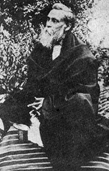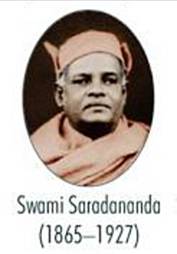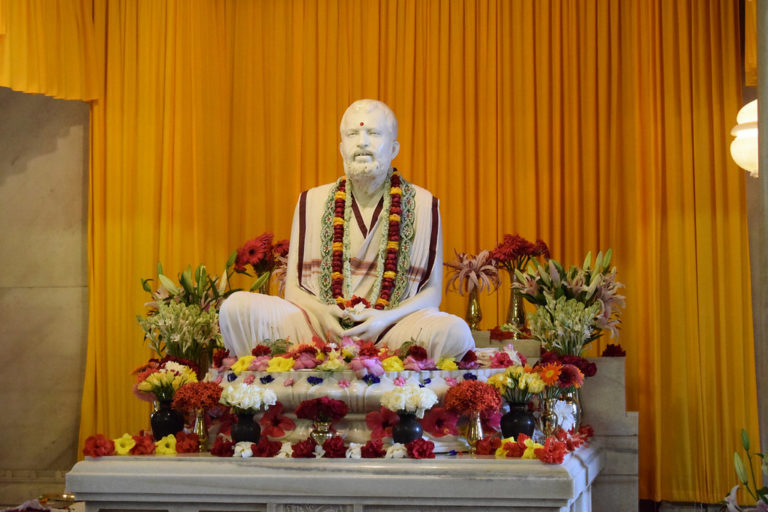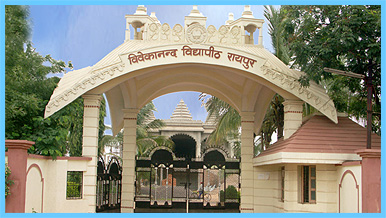Protap Chandra Mozoomdar was a member of the Hindu reform movement of the Brahmo Samaj, and a close associate of Keshub Chandra Sen. He is best known for his research into the Oriental aspects of the teachings of Jesus. He also wrote a biography of Sri Ramakrishna of whom he expressed deep admiration.
My mind is still floating in the luminous atmosphere which that wonderful man diffuses around him whenever and wherever he goes. My mind is not yet disenchanted of the mysterious and indefinable pathos which he pours into it whenever he meets me.
What is there in common between him and me? I, a Europeanized, civilized, self-centred, semi-sceptical, so-called educated reasoner, and he, a poor, illiterate, shrunken, unpolished, diseased, half-dressed, half- idolatrous, friendless Hindu devotee? Why should I sit long hours to attend to him, I who have listened to Disraeli and Fawcett, Stanley and Max Muller, and a whole host of European scholars and divines, I who am an ardent disciple and follower of Christ, a friend and admirer of liberal-minded Christian missionaries and preachers, a devoted adherent and worker of the rationalistic Brahmo Samaj,—why should I be spellbound to hear him? And it is not I only, but dozens like me who do the same. He has been interviewed and examined by many, crowds pour in to visit and talk with him. Some of our clever intellectual fools have found nothing in him, some of the contemptuous Christian missionaries would call him an imposter, or a self-deluded enthusiast. I have weighed their objections well, and what I write now, I write deliberately.
The Hindu saint is a man much under forty. He is a Brahmin by caste, he is well formed naturally, but the dreadful austerities through which his character has developed have permanently disordered his system, inflicted a debility, paleness, and shrunkenness upon his form and features that excite the deepest compassion. Yet in the midst of this emaciation, his face retains a fullness, a child-like tenderness, a profound visible humbleness, an unspeakable sweetness of expression and smile that I have seen in no other face that I can remember. A Hindu saint is always particular about his externals. He wears the gerua cloth, eats according to strict forms and is a rigid observer of caste. He is always proud and professes secret wisdom. He is always a guruji, and a dispenser of charms. This man is singularly indifferent to these matters. His dress and diet don’t differ from those of other men except in the general negligence he shows towards both, and as to caste, he openly breaks it every day. He most vehemently repudiates the title of being called a teacher or guru, he shows impatient displeasure at any exceptional honour which people try to pay him, and emphatically disclaims the knowledge of secrets and mysteries. He protests against being lionized, and openly shows his strong dislike to be visited and praised by the curious. The society of the worldly-minded and carnally-inclined he shuns carefully. He has nothing extraordinary about him. His religion is his only recommendation. And what is his religion? It is Hinduism, but Hinduism of a strange type. Ramakrishna Paramahansa, for that is the saint’s name, is the worshipper of no particular Hindu god. He is not a Saiva, he is not a Sakta, he is not a Vaisnava, he is not a Vedantist. Yet he is all these. He worships Siva, he worships Kali, he worships Rama, he worships Krsna, and is a confirmed advocate of Vedantist doctrines. He is an idolater, and is yet a faithful and most devoted meditator of the perfections of the one formless, infinite Deity whom he terms akhanda Saccidananda. His religion, unlike the religion of ordinary Hindu sadhus, does not mean the maturity of doctrinal belief, or controversial proficiency, or the outward worship with flower and sandal, incense and offering. His religion means ecstasy, his worship means transcendental perception, his whole nature burns day and night with the permanent fire and fever of a strange faith and feeling. His conversation is a ceaseless breaking forth of this inward fire, and lasts for long hours. While his interlocutors are weary, he, though outwardly feeble, is as fresh as ever. He merges into rapturous ecstasy and outward unconsciousness often during the day, oftenest in conversation when he speaks of his favourite spiritual experiences, or hears any striking response to them. But how is it possible that he has such a fervent regard for all the Hindu deities together? What is the secret of his singular eclecticism? To him each of these deities is a force, an incarnated principle tending to reveal the supreme relation of the soul to that eternal and formless Being Who is unchangeable in His blessedness and the Light of Wisdom.



